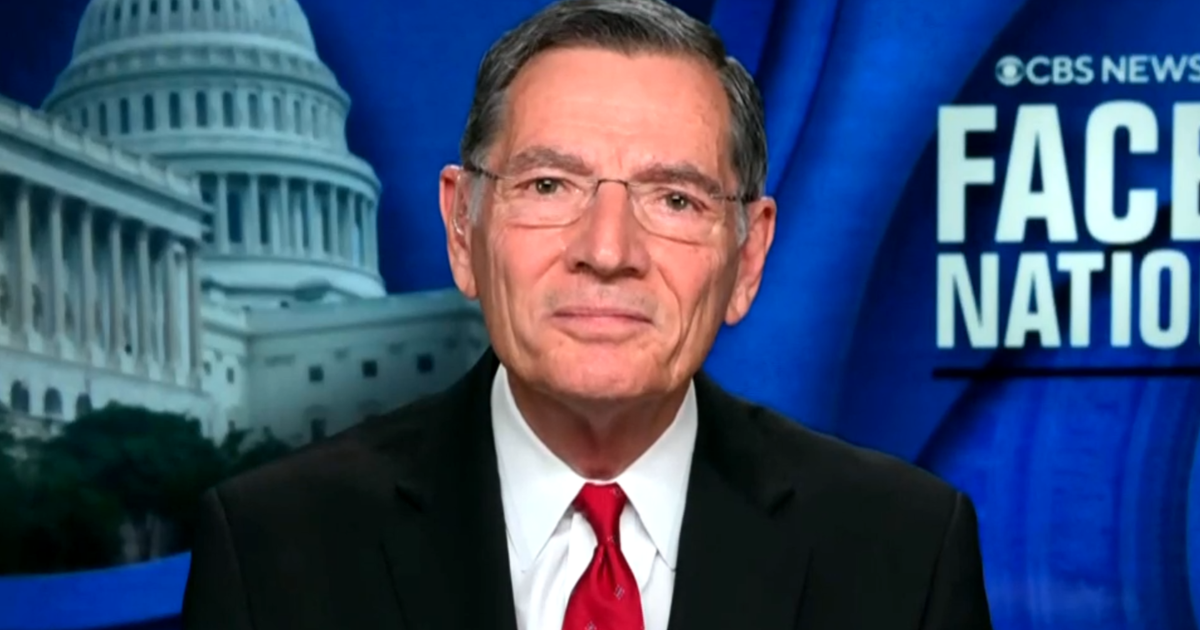There is no doubt that the Palestinian poet Ghassan Zaqtan is one of the shining faces in contemporary Arab poetry, because the volume of poetic accumulation achieved by the man and its aesthetic connotations make him at the forefront of poets inside the Arab countries, who refined their poetic texts early on and made them serve the self and its concerns instead of politics and its parties.
Ghassan did not write according to a neat and tidy poetic program, making the knowledge and cultures of the other intertwine with the poetic text as a kind of writing a scholarly poem that showcases its muscles, concepts and contexts. He does not write to record and document his biography, travels, and diaries as much as he writes in order to agitate poetic lines and awaken in the body the sedition of poetry and beauty.
The owner of Strangers in Light Coats belongs to the 1980s generation in the contemporary poetic scene. This generation that proposed an important poetic project in Arabic poetry, where the internal elements became a prominent role in shaping the awareness of the text and its poetic and its celebration of cutting, rotating, page blankness, and the entry of drawing in visually shaping the text.
This matter comes clearly in Zaqtan’s poetic experience, not in a decorative way that crowns the form at the expense of the text, but as an exercise for the eye to be immersed in the laboratory of poetic modernity as it crystallized in the West. At a time when Zaqtan was a promising poet celebrating life in Beirut.
On the occasion of the release of his new poetic work, “Strangers in Light Coats” in Morocco, Al Jazeera Net had this meeting with him:
-
Beirut, like the rest of the Arab poets, constituted for you a pivotal moment in the history of modern Arab poetry, and you were at that time one of the Arab poets who lived this pivotal transformation in establishing the modernity of Arab poetry. How did you enter Beirut as a young poet? What are the memories and poems that were deposited in your mind about that city?
When we talk about Beirut in the seventies, we are talking about a wide range of experiences and overlapping generations, about levels of rebellion and putting forward ideas and suggestions, including those that are hopeless and based on readings of surrealism and going further in digging and experimenting in a laboratory caused by an unthoughtful coincidence.
A mixture of tragedy and dreams of freedom as the remnants of student rebellion in Europe, existentialism, anarchy, a tendency to deconstruct everything in politics and art, heroism as a collective talent, living outside the center and building a model for a desired center, all somehow fueled the deep currents that were moving under the water and ripening there Far from the sway of the example and style.
Beirut, which we reached at the end of the seventies, was a region open to all currents, experiences, and cultures in the region, Arabs, Kurds, and anarchists. Everyone was turning into a poet in Beirut. It was a veritable laboratory of chaos and innovation.
-
How do you look at the geography of Palestinian poetry now? Do you think that the many translations that some experiences have been able to open the way towards the universality of her poem?
The Great Intifada in the West Bank and Gaza and its presence in the region and the world reconstructed the Palestinian personality, liberated it from decades of occupation, obliteration of identity, and from leaning on the shoulders of regimes and states, and the illusion of liberation from abroad. The Oslo Accords, which are inferior in any case, gave Palestinian culture space for debate among the literature formed on the ground.
In the context of the field confrontation with the occupation and between the experiences returning from exile, Mahmoud Darwish’s return to Ramallah and the post-“Why did you leave the horse alone” phase, accomplished by the generation of the eighties.. The dualities that were formed from it and in its context receded.. the liberation of exile from its rhetorical exile, and the liberation of the homeland from its static aesthetics.
I may have indicated elsewhere that “I am not talking about an agreed-upon direction around it. I am trying to describe the matter with cross-currents that are almost independent, and different experiences freed from the weight of “national responsibility” with its small political definition. They are completely new proposals that chose their sources and benefited from “accomplished” She did not submit to its conditions, and she expanded her sources so that her personal experience and her individual memory seemed more evident in the text, and she gave “narration” an influential position in the poetic scene.. Texts close to personal life, approaching the biography, not through her novel but by turning it into knowledge.
You are now in front of a wide range of experiments and innovations starting, perhaps, from a young poet talking about porters at four in the morning in the Nablus vegetable market, to a poet taking pictures of the Scandinavian winter, but in his texts you hear the voices of the boys running in the streets of Gaza as stones break between the little fingers, up to A Palestinian poet published an amazing collection of poetry about the shoes of miners in Chile at the beginning of the last century while contemplating an oil painting of Jerusalem that his father hung in the hall.
It is not only what is happening now, as you can see, the past is also here, but in a different context, in expanding the past and reading it in a personal light, in the same discovery that makes the Palestinian “Andraos Sabella,” born in Chile at the beginning of the last century, a young and read Palestinian poet in 2022.
It is true, in recent years the translation movement has witnessed a clear activity. In sum, this is good, but it should not turn into a goal. Many of these works will turn into a hurry, and the text capable of persuasion will remain, the text capable of presenting its privacy and identity in its first language and its first concerns without bowing to the idea of pleasing the other. and borrow his worlds.
-
Ghassan Zaqtan, you are one of the Arab poets who did not combine poetic writing with critical theorizing in their projects, but rather by breaking this duality with dozens of articles dealing with Arab political poetry. How do you live this transformation and cleavage between poetry and political article?
I chose journalism, cultural journalism in particular because it is in direct contact with writing. In our country, you cannot live because you write poetry and publish books. I started with sports training in Jordan and working among the youth in Lebanon before dedicating myself to the field of cultural journalism in Syria and then Tunisia until I arrived in Ramallah, during which I did not think of building a special theory or A ready-made theoretical metaphor that explains things like “how to write a good text” or leads me to a “desirable text”.
In my opinion, the matter is more complicated than that. The text comes first, then the reading takes place with its loads. Reading is a long ladder of levels in which there are many interpretations and the text is numerous. There is not a single fixed reading of the text, nor is there a single text that is repeated in the reading’s imagination.
-
Your new collection of poems “Strangers in Light Coats” (2021) was published in Rabat. What horizon do you draw for the Moroccan cultural issue, as a friend of Morocco since the eighties, and you have witnessed important cultural pages from its contemporary history?
In the past two years, more than one edition of an anthology of poetry appeared in Egypt within the publications of the cultural palaces entitled “If I slept near me yesterday” and under the supervision of the poet Gerges Shukri, and an anthology was issued by the House of Lines and Shadows in Jordan entitled “I forgot my bags at night” under the supervision of the poet Muhammad Al-Amri, as well as anthologies Translated into Italian by Dr. Simon Sibelio, and into French by the supervision of the Algerian poet Habib Tanweer and the translator Lotfi Nay.
As well as a collection of poetry on the Mediterranean House in Milan entitled “Speak, O stranger.. Speak” under the supervision of the poet Khaled Al-Nasiri..not as part of a plan or program as much as through initiatives of friends.
“Strangers in Light Coats”, which was published in Morocco, was initiated and supervised by the poet Hassan Al-Wazzani for “Multaqa Al-Roads”, which is known as a house specialized in French publications, and this is a new experience for it with the Arabic book.
In my opinion, the publication of the book in Morocco is important on a personal level, important and joyful, and by the way, this is my first work to be published in the Maghreb.
It remains to point out that the trend towards novel and narration is not a special Moroccan case. The phenomenon can be seen in the Orient as well, although I see that Maghreb poetry has witnessed a strong presence in recent years through publications by Moroccan poets, including Oriental editions, translations and important critical critical readings such as: Mohamed Bennis And Yassin Adnan, Salah Bousreif, Abdellatif Al-Warari, Murad Al-Qadri, Mubarak Wasat, Muhammad bin Talha and others of course, and through translations of remarkable works that achieved a strong presence in other languages, English in particular, dedicated names such as Hassan Najmi.
The strength of the Moroccan cultural scene and its influences are nourished by the state of controversy between the different experiences and the wide spectrum of these experiences on the one hand, and from the critical accompaniment of the experiences on the other hand, as well, and this is essential, from the language laboratory that Morocco enjoys and the dialogue of these Arab and Berber cultures with French, Spanish and African influences. This includes narration, music, cinema and theater.
-
What do you keep from the friendship of the Jordanian poet Amjad Nasser, a few years after his death? And what does this experience mean to you, especially since you have been accompanying it since it sprouted in Jordan and Beirut later?
I had a strange and very early friendship with Amjad, perhaps it started estrangement when we were descending from our adolescence to Amman, but through age and journey it turned to serenity, and expression to him. I wrote in a press interview with the late Lebanese poet Inaya Jaber, published in As-Safir before it stopped, that our generation, the generation of the eighties, did not get fathers, so he did not give him criticism, which was occupied with accomplished sayings that were being transferred from the seventies and sixties to the early days of the “Renaissance”, and from the station to a station as if it were pirate treasures, artifacts, or sacred commandments; Cash did not give us cards.
If I have to talk about fathers who are from my generation, including, without a doubt, Amjad Nasser, the experiences that were formed at the end of the seventies and matured in the eighties away from the political center – which disintegrated after the exit of the Liberation Organization from Beirut – and its cultural suggestions, and joined together despite their differences to form a current He was able to bring about change and present his own multiple suggestions. The idea was to open the corridors and break free from the pattern. On the Palestinian level, we can talk about the Intifada and the legitimacy of the prose poem as an achievement for those years.
I have always found the experience of our generation closer to the Spanish generation of 27 who edited the Spanish poem and presented it in its contemporary context, the generation of the eighties, which included young poets from Palestine, Syria, Lebanon, Jordan, Iraq, Egypt and Morocco. I am talking about Asma, in addition to Amjad, such as Bassam Hajjar, Hashem Shafiq and Walid Al-Khazdar. Muhammad Al-Yousifi, Helmy Salem and Al-Saghir Awlad Ahmed, Nouri Al-Jarrah, Zuhair Abu Shayeb, Adam Fathi, Youssef Abdel Aziz, Zakaria Muhammad, Khaled Darwish, Youssef Abu Luz, Rasim Al-Madhoun, Shawky Bzei’, Inaya Jaber .. and of course Abbas Beydoun and Salim Barakat, to the end of this amazing march of builders.
-
How did you become aware of yourself through the poem?
Like others, I looked at the poetry of the sixties and followed the lively debate led by great poets such as Youssef Al-Sayegh, Sarkoun Boulos, Salah Faeq, Adonis, Onsi Al-Hajj and Al-Khal, the controversy of groups and pulpits, the Kirkuk group, the poetry group and the literary movement, but to be precise, it was not for me and most of us, I think, in search of a theory As much as it was an epistemological research, I did not find fathers in that era or the time of the pioneers who preceded it and established it, and I do not think that Amjad found that, our project was going outside the proposed past, we chose our own past, outside the categories produced by the circles of literary ideology that surrounded Bjdhat poetic episodes and their regularity and disintegration in that decade.
The truth is that outside of those arguments and the deconstruction of forms, there was what was taking shape in parallel and as a result of the argument at the same time, a more tolerant and less committed component of political proposal and outside of patterns, a mixture of the tendency to rebel against the prevailing, prevailing that includes the pattern of the polemic itself and the critical alignments and certainties that ruled the polarization, but At the same time there were currents deep beneath the surface that celebrated the devotion to poetry.
-
There is something that draws the reader’s attention to your first poetic works, is that it was one of the few collections that touched the aesthetic dimension in drafting the text, at the expense of everything that is political and ideological. Why?
I had no plan to write poetry, but I knew what I didn’t want to write, it’s that simple. I was writing in that strange context, and almost everything was uncertain and shrouded in doubt, after the statues that followed you were shattered, from the curricula to the rulers of the critics to the texts written with the confidence and certainty of the knower, after you are freed from all this persevering centralism, you will be alone and you will write as a lone person ; I think that’s what happened.


![Central Connecticut State Predicted to Win College Basketball Matchup [1/12/2025] Central Connecticut State Predicted to Win College Basketball Matchup [1/12/2025]](http://cdn.cosmicjs.com/cc63c3d0-d0ab-11ef-95a9-eb348a5aa66b-CBB_2024_70_CCSU_LIU.png)


